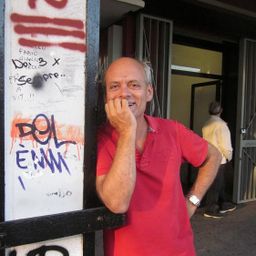Uses of industrial heritage: cases in transformation I
My Session Status
Examples from several continents, in Europe, South America, North America, Turkey, show strong continuity in the objectives that govern the reuse of industrial buildings, for example the concern to take into account the industrial heritage as a resource for urban and territorial development, or the close links that it has with culture, whether it is used to house cultural facilities or more simply to bear witness to the history and memory of the place. Increasingly, policies for the reuse of industrial heritage are part of more global programs of urban and territorial transformation: renovation of canals and waterways formerly used by industry, reactivation of old railway lines, taking into account the "heritage ecosystem", a multidisciplinary approach that takes into account the place of a building in its urban environment, but also as an element of a production chain, the interest of a remarkable building that allows the adaptive reuse of a site, etc.
However, national models – or habits – persist, various issues guide projects, and controversies emerge: what place should be given to local memories – which may be divergent, conflicting, or even alternative to the 'official' history? What trade-offs should be made between private initiatives or support and public institutions? How can architects, urban planners, social sciences scholars and heritage communities work together, especially when divergent interests emerge? Behind the already old conflict of legitimacy between economic interests and heritage value, many situations are unfolding which show the vitality and inventiveness of the actors of the reuse of industrial heritage sites.
Each session will be introduced very quickly by the session chairman. The papers will be followed by a discussion at the end of each of the three sessions.
Sub Sessions
Patrimoine qui « ne va pas de soi » (Leniaud, 1992) et dont la destruction reste « un automatisme culturel » (Gasnier, 2018), les héritages industriels continuent aujourd’hui à trouver difficilement d’autre justification pour leur conservation que celle d’être réutilisés. Cette relative marginalité vis à vis de patrimoines plus institutionnels peut être prise comme une richesse : par l’usage, les héritages industriels se frottent et se percolent avec les représentations actuelles de nos socié...
The transformation of functions in industrial structures is supported by the public sector for cultural purposes, while the private sector supports it because of its economic benefits. Thus, there is a multidimensional process (Hume, 1987). Also, since until the end of the 19th century, structures were built according to permanence criteria, durability is prominent in these structures as a prominent feature. Industrial structures, in particular, are structures that inspire much more confid...
J’aimerais profiter du Congrès TICCIH 2021 pour présenter le mémoire de maîtrise sur lequel je travaille actuellement et qui devrait être terminé d’ici l’hiver prochain. Dans le cadre de ce mémoire, je réalise une étude de cas comparative me permettant d’explorer le processus de reconversion d’un premier bâtiment industriel situé à Birmingham nommé Junction Works et d’un second bâtiment montréalais que l’on appelle la Tonnellerie. L’étude de ces deux cas se veut un moyen d’étudier les écosyst...



